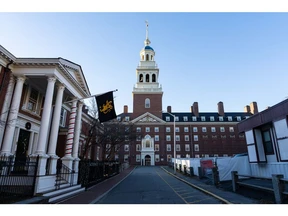May 23, 2025
Harvard University has voiced strong opposition to the Trump administration’s recent move to strip the institution of its ability to admit international students. The U.S. Department of Homeland Security (DHS) has revoked Harvard’s certification under the Student and Exchange Visitor Program (SEVP), a decision that prevents the university from enrolling new foreign students and places the academic standing of current international students in jeopardy.
Federal Justifications and Accusations
The federal government, through Homeland Security Secretary Kristi Noem, justified the action by accusing Harvard of failing to protect Jewish students on campus, promoting controversial diversity, equity, and inclusion (DEI) initiatives, and allegedly maintaining ties with the Chinese Communist Party. Secretary Noem cited these concerns as justification for the revocation, claiming that the university’s actions contributed to an unsafe campus climate and questionable international affiliations.
Effect on International Students
The immediate impact of the revocation is significant, with approximately 6,800 international students currently enrolled at Harvard. These students may now be required to transfer to other approved institutions or leave the U.S. to maintain their visa status. The uncertainty has sparked concern among students and faculty alike, who fear the disruption to academic progress and international research collaboration.
Harvard’s Response and Legal Strategy
In response, Harvard has condemned the move as politically motivated and a threat to academic independence. A university representative called the decision a “retaliatory measure” that could seriously damage both the institution and the broader academic environment in the United States. The university is reportedly exploring legal avenues to challenge the federal action, arguing that it represents a misuse of government authority and undermines higher education’s global role.
Wider Implications and Public Reaction
This action is part of a broader campaign by the Trump administration targeting elite universities. Earlier this year, the administration froze billions in research funding and proposed stripping Harvard of its tax-exempt status. The escalating confrontation has drawn condemnation from academic leaders and international officials. Australian Ambassador to the U.S., Kevin Rudd, described the decision as deeply concerning and emphasized diplomatic efforts to assist affected students.
Conclusion
The revocation of Harvard’s SEVP certification underscores mounting tensions between federal authorities and leading academic institutions. As Harvard prepares a legal response, the decision’s consequences will likely resonate across the U.S. education system and affect global perceptions of American higher education. The outcome of this dispute could influence how universities engage with international students and uphold their academic values in the face of political pressure.



